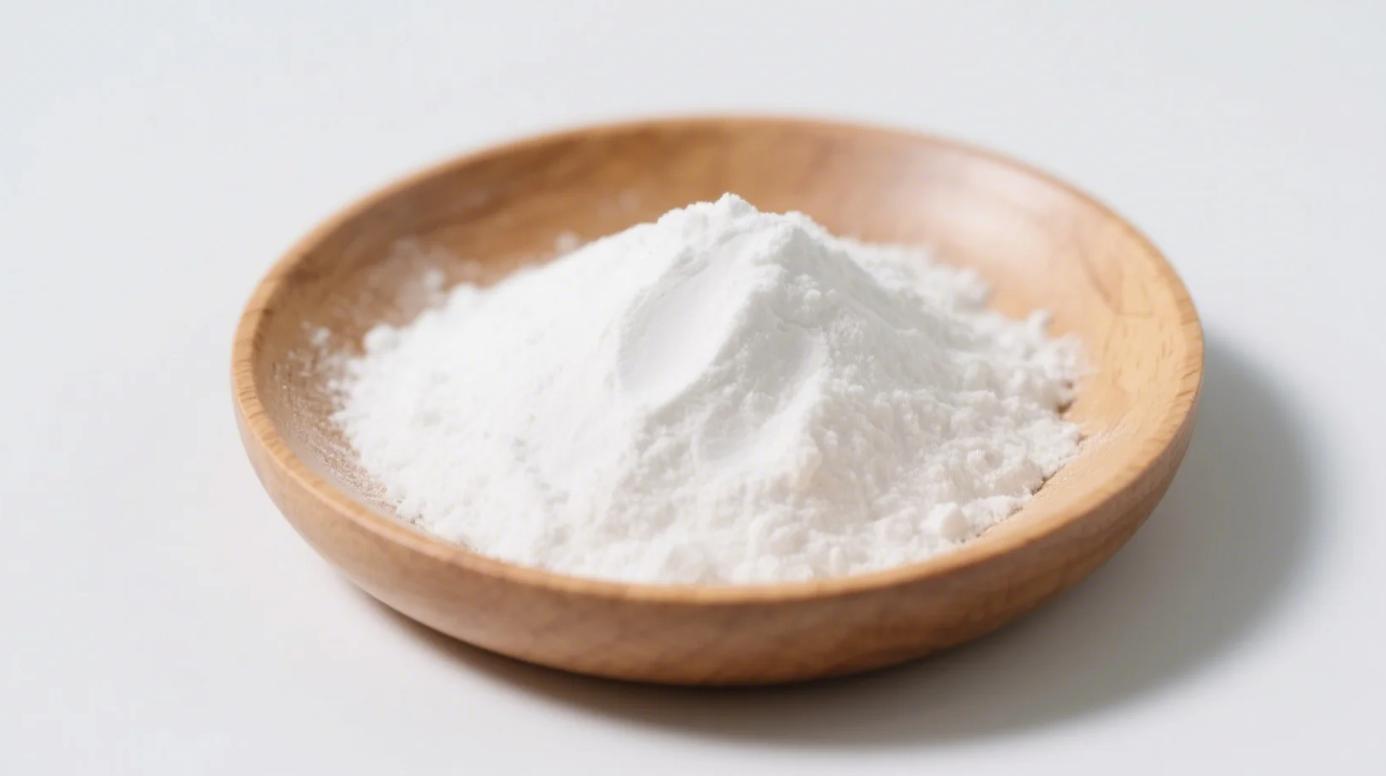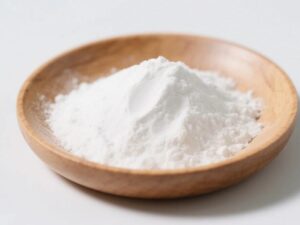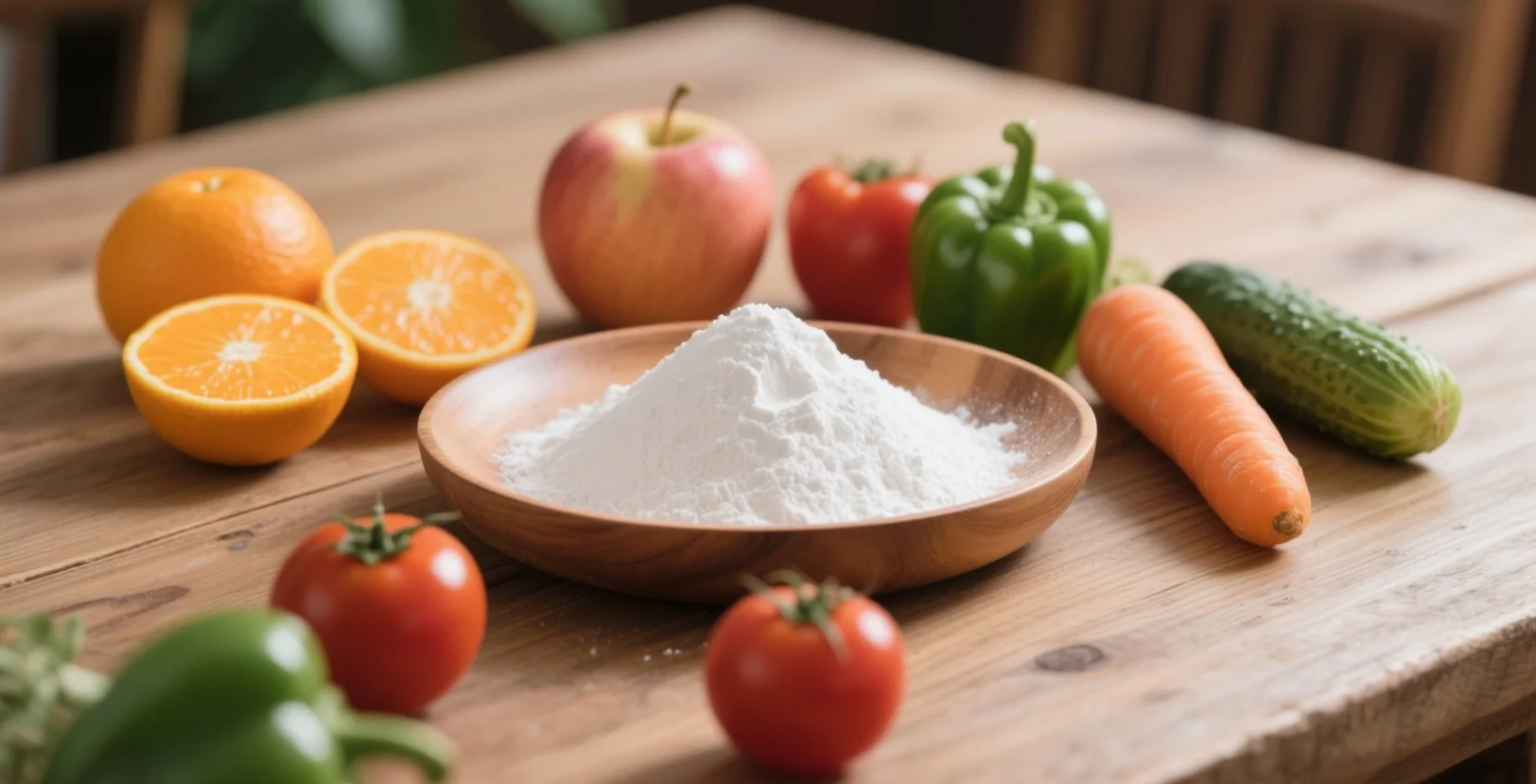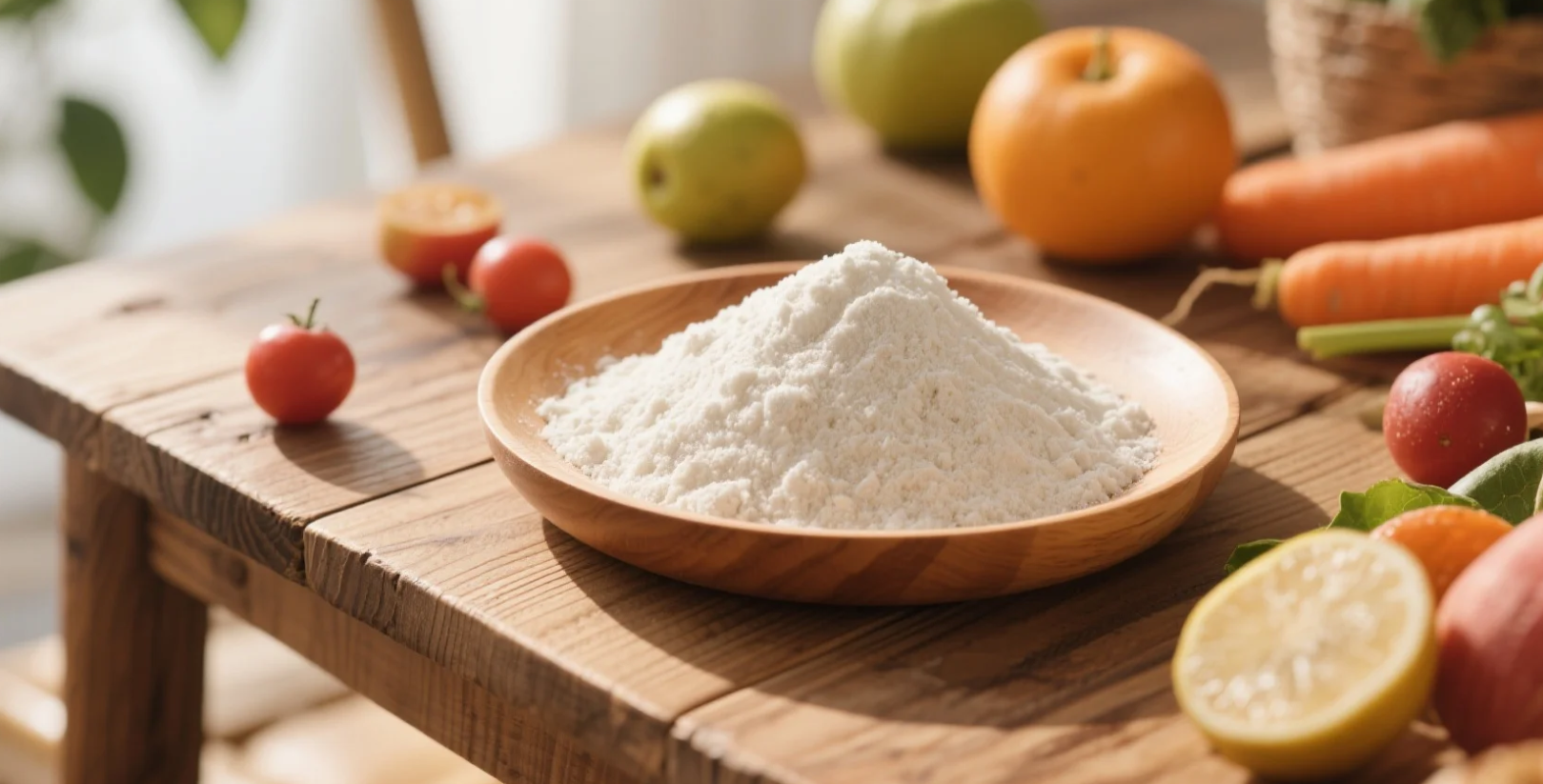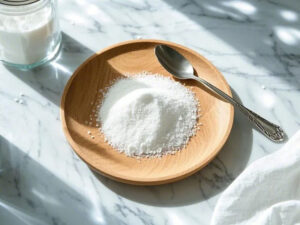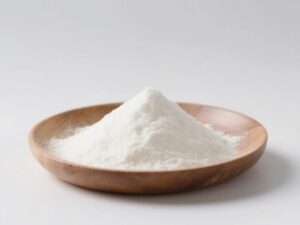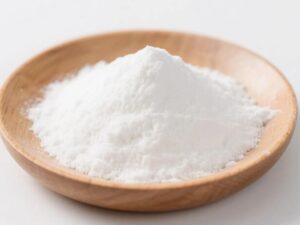Our certified organic inulin powder is a natural, plant-based dietary fiber extracted from organically grown chicory root (Cichorium intybus). With its mild sweetness, excellent solubility, and proven prebiotic benefits, it serves as a multi-functional ingredient for sugar reduction, fiber enrichment, fat mimicking, and digestive wellness.
Ideal for clean-label, keto-friendly, diabetic-safe, and gut-health-focused products, our organic inulin meets global standards for purity, sustainability, and performance.
What Is Organic Inulin?
Inulin is a fructan—a chain of fructose molecules—naturally found in plants like chicory, Jerusalem artichoke, and garlic. Our organic inulin powder is produced through a gentle hot-water extraction process from certified organic chicory roots, followed by filtration, concentration, and spray-drying. No chemical solvents or synthetic additives are used.
It contains 90%+ dietary fiber (as soluble fiber), provides only 1–2 kcal/g, and has a glycemic index near zero—making it suitable for low-sugar and low-calorie formulations.
Key Functional & Nutritional Benefits
- Prebiotic: Clinically shown to support growth of beneficial Bifidobacteria and Lactobacilli
- Sugar Reduction: Replaces up to 30–50% of sugar while maintaining texture and mouthfeel
- Fat Mimetic: Adds creaminess and body in dairy and plant-based products
- Fiber Fortification: Easily boosts daily fiber intake without altering taste
- Low Calorie: ~1.5 kcal/g vs. 4 kcal/g for sugar
- Clean Label: Non-GMO, allergen-free, and free from artificial ingredients
Technical Specifications
| Parameter | Organic Inulin Powder |
|---|---|
| Source | Chicory root (Cichorium intybus) |
| Appearance | Fine, white to off-white free-flowing powder |
| Odor & Taste | Mild, slightly sweet |
| Inulin Content (Dry Basis) | ≥90% |
| Dietary Fiber (Total) | ≥90% (as soluble fiber) |
| Moisture Content | ≤5.0% |
| pH (10% aqueous solution) | 5.0 – 7.0 |
| Ash Content | ≤0.5% |
| Degree of Polymerization (DP) | Average DP 10–12 (short-chain to medium) |
| Solubility | Fully soluble in cold water (>70 g/100 mL) |
| Shelf Life | 24 months (stored sealed in cool, dry conditions) |
| Heavy Metals (Maximum Limits) | |
| – Lead (Pb) | ≤0.1 mg/kg |
| – Arsenic (As) | ≤0.1 mg/kg |
| – Cadmium (Cd) | ≤0.05 mg/kg |
| – Mercury (Hg) | ≤0.01 mg/kg |
| Microbiological Criteria | |
| – Total Plate Count | ≤1,000 CFU/g |
| – Yeast & Mold | ≤100 CFU/g |
| – Escherichia coli | Absent in 10 g |
| – Salmonella spp. | Absent in 25 g |
| – Listeria monocytogenes | Absent in 25 g |
| Certifications | USDA Organic, EU Organic, Non-GMO Project Verified, Kosher, Halal (available), Gluten-Free Certified (<5 ppm), Allergen-Free |
All testing conducted in ISO 17025-accredited laboratories using validated methods (e.g., HPLC for inulin content, ICP-MS for heavy metals). Complies with FDA 21 CFR, EU Regulation (EC) No 1333/2008, and Codex guidelines for dietary fiber ingredients.
Applications
Organic inulin powder enhances both nutrition and functionality across diverse categories:
- Beverages: Adds soluble fiber to juices, smoothies, and RTDs without cloudiness
- Dairy & Alternatives: Improves mouthfeel in yogurts, ice cream, and plant-based milks
- Bakery: Replaces sugar/fat, retains moisture, and extends shelf life in breads and muffins
- Nutraceuticals: Base for prebiotic supplements, powders, and chewables
- Confectionery: Used in soft candies and gummies for fiber enrichment
- Infant Formula & Clinical Nutrition: Supports gut microbiome development
Note: High doses (>15–20 g/day) may cause mild digestive discomfort in sensitive individuals; gradual introduction is recommended.
Why Choose Our Organic Inulin?
We partner with certified organic chicory growers and use eco-friendly extraction methods to preserve bioactivity and purity. Our production facility follows GMP and HACCP protocols, with dedicated lines to prevent cross-contact with major allergens.
Every shipment includes full documentation: Certificate of Analysis (CoA), Organic Certificate, Gluten-Free Statement, and Safety Data Sheet (SDS)—ensuring regulatory compliance and formulation confidence.
Available packaging: 10 kg or 25 kg food-grade multi-wall paper bags with PE liner; bulk options upon request.
FAQs
Q: Which inulin is better for beverages?
A: Jerusalem Artichoke Inulin dissolves instantly in cold liquids and adds mild sweetness.
Q: Can chicory inulin replace sugar?
A: While not sweet, it reduces sugar by improving mouthfeel in low-calorie products.
Q: Is inulin suitable for keto diets?
A: Yes! Both variants are low-carb (<5g net carbs per 100g) and keto-friendly.
Q: Does inulin cause bloating?
A: Start with small doses (5g/day) to allow gut adaptation.
Q: Do you offer private labeling?
A: Yes! Custom branding available for both inulin types.
Packing

